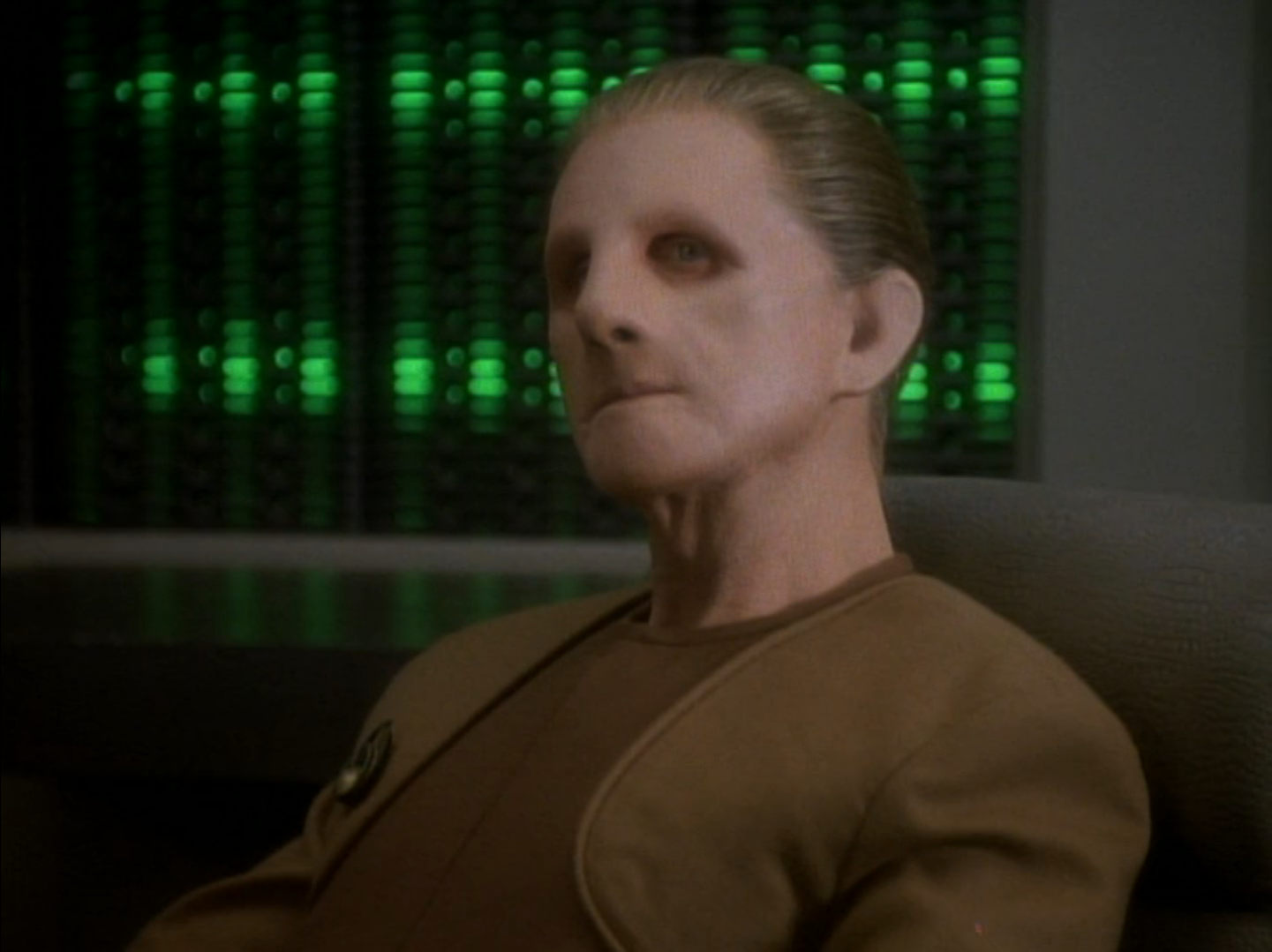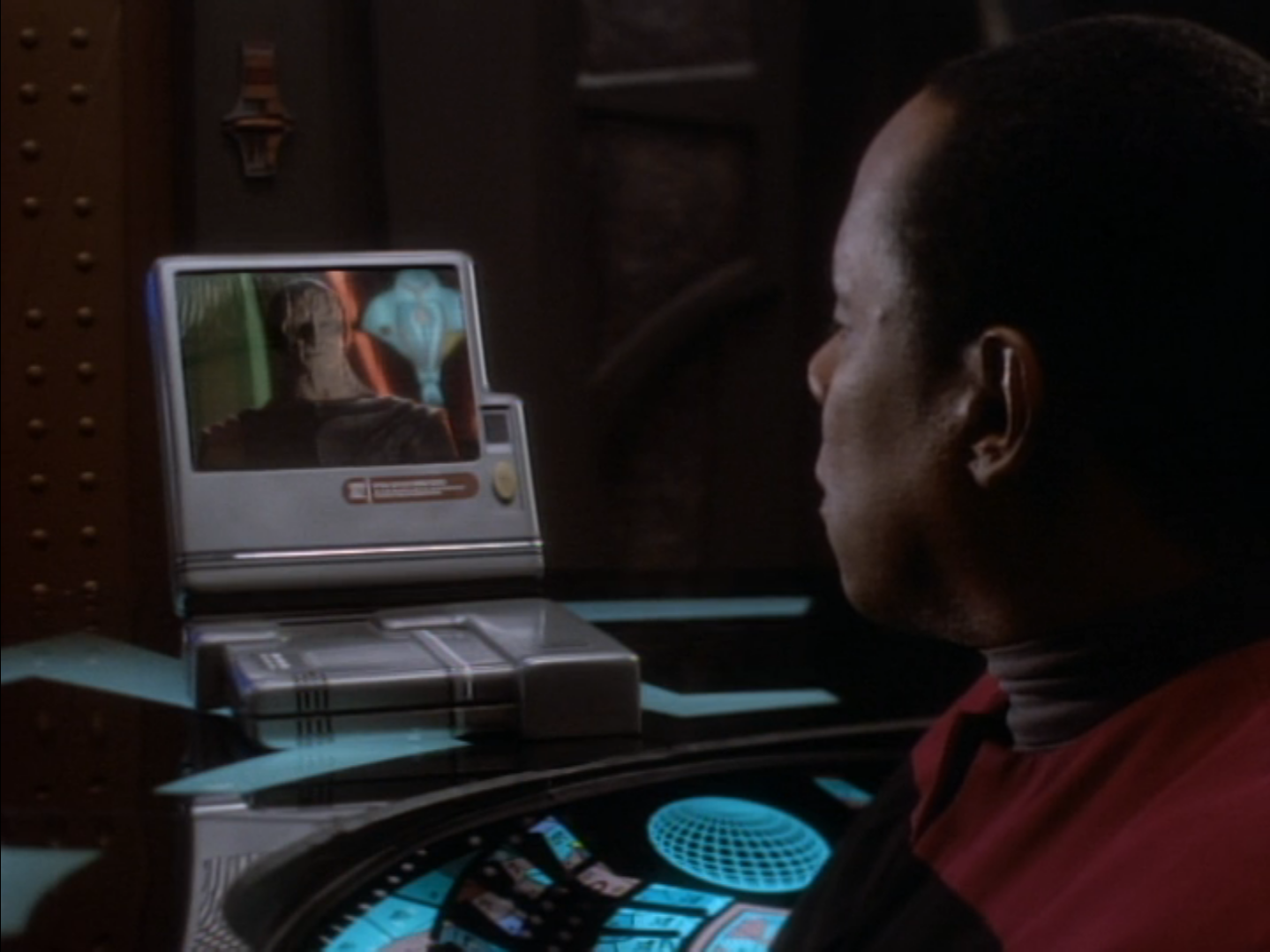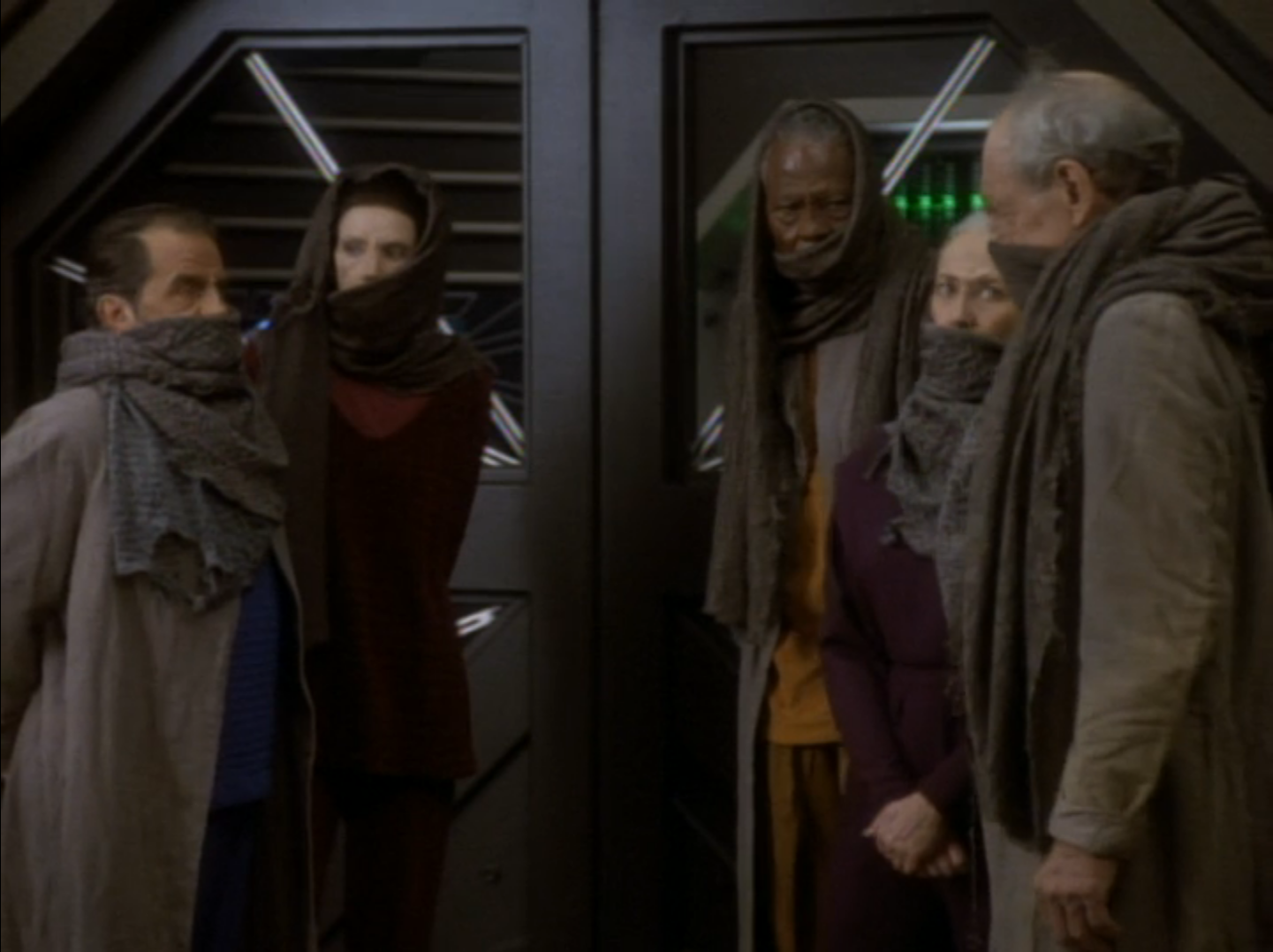Phil let it slip that he really liked this one, and after looking at the blurb, I do seem to recall it was a good one.
A freighter arrives with a passenger that has a rare medical “condition called Kalla-Nohra, it’s apparently chronic but he doesn’t have his medication.”[1] Kira reports that this medical condition was the result of a mining accident at a forced labor camp that she helped liberate. She naturally wants to see the patient, who turns out to be Cardassian. The obvious implication being that he was one of the people running the camp, and not one of the laborers. Kira calls for security and we cut to the title sequence. The music is firing on all cylinders here. It’s literally hitting all the right notes.
The Cardassian is played by special guest star Harris Yulin. the name does not ring a bell, but the voice sounds familiar; regardless, the performance is commanding.[2]
Here I must illustrate something:

While Kira is going off on how this Cardassian is bad just because he was at the camp. Odo is shown in this observant glance. It’s well played, but the point is that it had to have been planned in advance for what is about a second-long shot. And it’s absolutely brilliant. The fact that I know this had to have been done on purpose just makes it better. It’s a detail I probably would have missed the first time I saw it. If I can get a video clip of it to illustrate it better later, I will update this post.
The the plot then centers on whether this Cardassian, known as Marritza was at the labor camp or not. Sisko wisely puts Odo in charge of the investigation, someone who will hopefully be more impartial than a Bajoran like Kira, but Kira cons Sisko into letting her do it, playing the sympathy angle.
She goes to interrogate Marritza, and a most wonderful dialogue ensues. He plays her emotions beautifully and it illustrates how perceptions are very different on either side of a conflict, and how it is difficult to be sure of the truth.
Sisko then goes through a delicate diplomatic dance with a Cardassian representative.

I think that strange bird-like shape behind the Cardassian is the symbol of the Cardassian government, but it looks odd being so large.
Kira does some soul searching with the assistance of Dax.
The crew finds a record of the Marritza at the labor camp,[3] and discover that he was not the file clerk as he has claimed, but the head administrator, Gul Darhe’el.
Kira goes back to him for another wonderful dialog. He let’s slip that he knows Kira was with a Bajoran resistance force, a fact that Odo recognizes as out of place for a labor camp administrator to have known.
This is truly art. The music, the writing, the direction, and the costuming all coming together. The colors of the outfits and the makeup creating the proper contrasts. They knew this was good and they pulled out all the stops to make it.
And here we see some survivors from the labor camp in question:

I guess the Cardassians made sure that each Bajoran “race” got fair representation in the labor camp, and for some reason they have skin color variations similar to humans.
Heh, an appropriate joke told through Quark.
Odo is investigating the fact that Gul Darhe’el knew Kira was in that resistance group. He finds that someone requested information on Kira, and has tracked it down to the Marritza. I guess the station is in the habit of giving away confidential information as per episode 5, Captive Pursuit. Odo takes a call from Gul Dukat, the Cardassian who used to run the station, and who has been seen on Next Generation, if I recall correctly, and will make recurring appearances. Odo shows his disdain for the Gul’s cheating in a game they played, as a part of the setup of the conversation. Odo negotiates limited access to some Cardassian files in an attempt to ascertain the truth.
Kira continues having fascinating conversation with the Marritza/Gul Darhe’el, when Odo pulls her aside to tell her that the man in the cell wanted to be caught. A simply brilliant scene ensues which I will not spoil.
Final Grade A+
I remember this as being a great episode, and upon this re-watching of it, that memory holds true. It’s not perfect, nothing ever is, but ite kind of stuck with me and got absorbed into my subconscious, not just in my perceptions of the show but possibly of things I encountered later in life. The similarity of Bajorans to Jews is quite strong here, and I expect this is where I got that impression. I also took from it a sense of how war biases can affect people. There’s a lot to digest in this episode, and I can’t discuss the subjects involved without being too spoilery.
1. This was a few years after “medicine” became “medication,” but that’s a rant for a different time. Also, why does he not have his “medication” with him?
2. I looked it up, and he’s been in quite a few things, but I’ve only seen a couple, and would probably have only recognized him from Ghostbusters 2, or this role.
3. They just can’t resist doing the “enhance” trick, even though you can’t just “enhance” a picture like that.